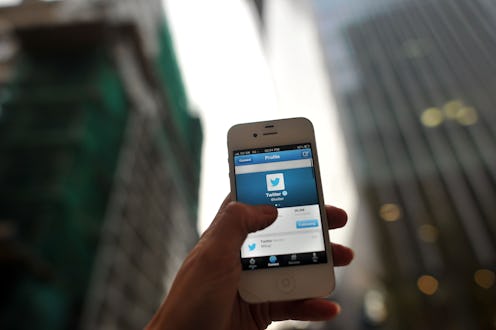News
No, Twitter Isn't "Shadow-Banning" Republicans — Here's What's Really Happening

On Wednesday, Vice published an article asserting that Twitter is "shadow banning" prominent Republicans on the social media platform. This wasn't quite accurate, however: Although Twitter did hide the names of certain Republicans from the auto-complete form on its website, that's not what shadow banning actually is.
Shadow banning is when the operators of a social media service or message board make a user's posts invisible to everyone but the user. However — and this is a crucial element of the practice — shadow banned users aren't told that they've been shadow banned. As a result, they'll continue writing tweets, forum posts or what have you just as they were before — but in reality, nobody other than themselves can see any of their content. The idea behind shadow banning is to eliminate situations wherein troublesome users, after being outright banned, create a second account to continue their activity on a service.
That's not at all what's happened to Republicans on Twitter, however. What Twitter did was much less severe, as it didn't affect the visibility of these Republicans' tweets.
Twitter's website contains a search bar up top, and like many search fields, it auto-populates itself with suggested names when a user — long before hitting "enter" — begins typing letters into the search box. According to Vice, Twitter made it so that the accounts of certain Republicans, including RNC Chair Ronna Romney McDaniel, did not appear in the auto-complete list (It has since reversed course and restored these accounts to full visibility).
Importantly, Twitter did not remove the names of these Republicans from the search results themselves; anybody who searched for "Ronna McDaniel" on Twitter and pressed "enter" would see her account. More importantly, the social media service didn't make those Republicans' tweets any less visible than they were before. This is a far cry from actual shadow banning.
After the Vice report was published, President Trump wrongly claimed in a tweet that "SHADOW BANNING" Republicans — which, again, Twitter didn't do — is an "illegal practice" (It's not).
"Some accounts weren’t being auto-suggested even when people were searching for their specific name," Twitter product lead Kayvon Beykpour wrote on Wednesday. "Our usage of the behavior signals within search was causing this to happen & making search results seem inaccurate." Twitter has since restored those Republicans' Twitter accounts to full search visibility.
Twitter has been criticized by both the right and the left. Conservatives have accused the company of engaging in political censorship for banning a handful of far-right accounts, while progressives point out that Twitter allows most neo-Nazi and white supremacist accounts to continue their activity without impediment. Many have also condemned the service for refusing to ban Trump's account even though many of his tweets have violated Twitter's terms of service.
In June, the Washington Post reported that executives from Twitter and Facebook have held secret meetings with powerful conservatives, including Sean Hannity and at least one of Trump's advisers, in order to assure them that they aren't censoring right-leaning accounts and tweets.